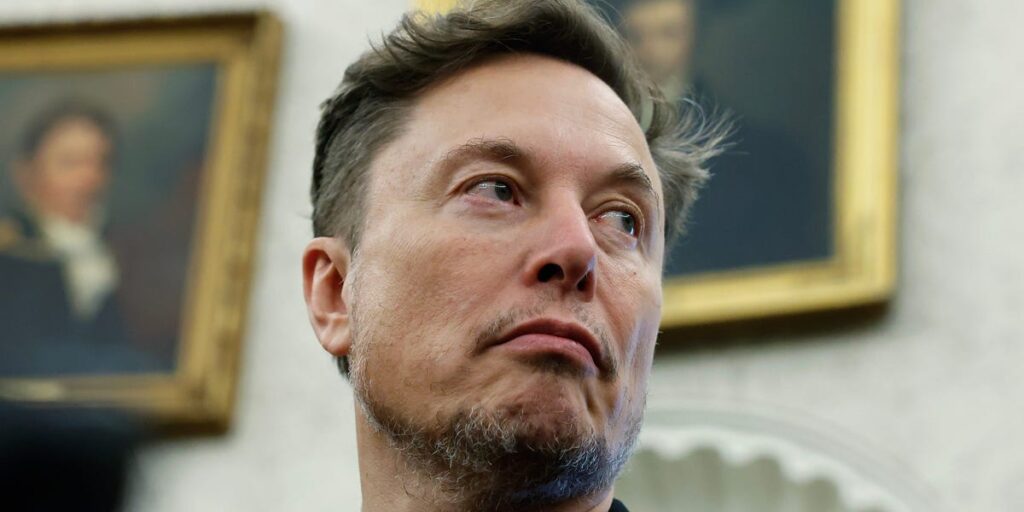Elon Musk is following through on his threat to sue Apple — and he’s going after OpenAI, too.
Two of Musk’s companies filed a lawsuit against Apple and OpenAI on Monday, accusing them of monopolistic behavior and using their respective market position in the smartphone and generative AI markets to stifle the growth of his tech companies.
Musk’s social media company, X, and his artificial intelligence company, xAI, which operates the chatbot Grok, alleged in the suit that Apple and OpenAI had engaged in an “anticompetitive scheme” that caused billions of dollars in damages.
“Working in tandem, Defendants Apple and OpenAI have locked up markets to maintain their monopolies and prevent innovators like X and xAI from competing,” said the lawsuit, which was filed in a Texas federal court.
OpenAI criticized the lawsuit in a statement to Business Insider.
“This latest filing is consistent with Mr Musk’s ongoing pattern of harassment,” an OpenAI spokesperson said on Monday.
Apple, which did not immediately comment on the suit, previously told Business Insider that the App Store is “designed to be fair and free of bias.”
“We feature thousands of apps through charts, algorithmic recommendations, and curated lists selected by experts using objective criteria,” the spokesperson said.
Monday’s lawsuit takes aim at the deal between Apple and OpenAI, announced in June 2024, which integrates ChatGPT’s functionality in iOS through Apple Intelligence and Siri.
X’s lawsuit said that arrangement prevents other artificial intelligence products — including from xAI, Google, and Anthropic — from unleashing their full potential with iPhone integration. The suit also said OpenAI could be getting valuable training data from the prompts of iPhone users, which its rivals don’t have access to.
According to the lawsuit, Apple wants to prevent “super apps” like Grok from displacing the functionality offered by iPhones. It says that if more people understand that they can use a generative AI chatbot instead of an Apple Photos tool to edit photos and conduct other tasks, then users might decide to get less expensive phones.
“As this becomes true for more and more categories of functionality, it begins to erode Apple’s value proposition that it is worth spending up to $1,599 on an iPhone when a user could access his or her preferred generative AI chatbot through some less expensive option,” the lawsuit says.
The lawsuit also blamed Apple’s practices for Grok’s low market share.
“Grok has yet to attain more than a few percent of the generative AI chatbot market, stifled by anticompetitive actions taken by Apple and OpenAI,” the lawsuit says.
Attorneys for xAI, which earlier this year acquired X Corp., formerly Twitter, did not immediately respond to a request for additional comment.
The latest in Musk’s legal battle with OpenAI
Steve Granitz/Getty Images; Denis Balibouse/REUTERS
Musk helped cofound OpenAI in 2015, investing $44 million in the venture before he had a falling out with Altman three years later.
The Tesla CEO also sued Altman and OpenAI in a separate case last year, accusing Altman of betraying OpenAI’s founding mission as a nonprofit research lab dedicated to keeping AI technology safe and freely available for the good of mankind.
That separate suit — which alleges OpenAI and Microsoft violated antitrust laws by asking investors not to back competing AI firms such as Musk’s own xAI — accuses Altman and other OpenAI executives of deceiving Musk into cofounding the company.
OpenAI countersued Musk earlier this year, accusing him of a “years-long campaign of harassment.”


